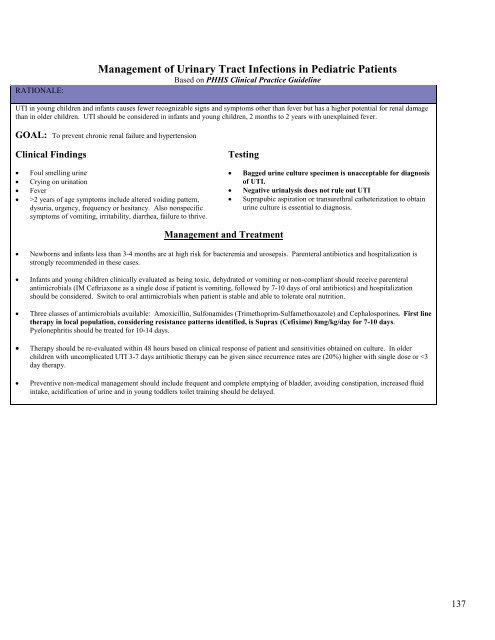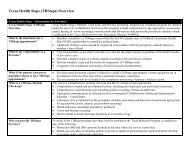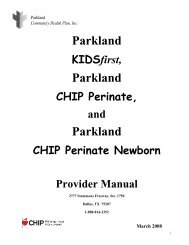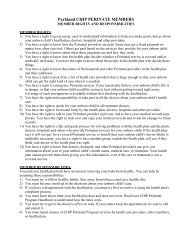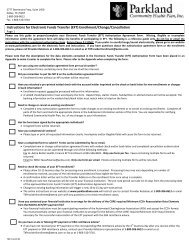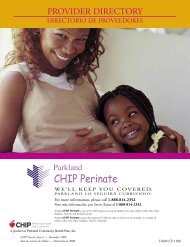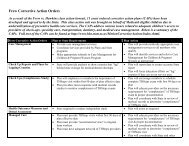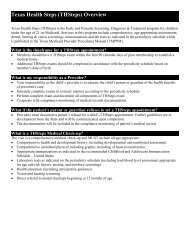PARKLAND HEALTHfirst - Parkland Community Health Plan, Inc.
PARKLAND HEALTHfirst - Parkland Community Health Plan, Inc.
PARKLAND HEALTHfirst - Parkland Community Health Plan, Inc.
Create successful ePaper yourself
Turn your PDF publications into a flip-book with our unique Google optimized e-Paper software.
RATIONALE:<br />
Management of Urinary Tract Infections in Pediatric Patients<br />
Based on PHHS Clinical Practice Guideline<br />
UTI in young children and infants causes fewer recognizable signs and symptoms other than fever but has a higher potential for renal damage<br />
than in older children. UTI should be considered in infants and young children, 2 months to 2 years with unexplained fever.<br />
GOAL: To prevent chronic renal failure and hypertension<br />
Clinical Findings<br />
• Foul smelling urine<br />
• Crying on urination<br />
• Fever<br />
• >2 years of age symptoms include altered voiding pattern,<br />
dysuria, urgency, frequency or hesitancy. Also nonspecific<br />
symptoms of vomiting, irritability, diarrhea, failure to thrive.<br />
Testing<br />
• Bagged urine culture specimen is unacceptable for diagnosis<br />
of UTI.<br />
• Negative urinalysis does not rule out UTI<br />
• Suprapubic aspiration or transurethral catheterization to obtain<br />
urine culture is essential to diagnosis.<br />
Management and Treatment<br />
• Newborns and infants less than 3-4 months are at high risk for bacteremia and urosepsis. Parenteral antibiotics and hospitalization is<br />
strongly recommended in these cases.<br />
• Infants and young children clinically evaluated as being toxic, dehydrated or vomiting or non-compliant should receive parenteral<br />
antimicrobials (IM Ceftriaxone as a single dose if patient is vomiting, followed by 7-10 days of oral antibiotics) and hospitalization<br />
should be considered. Switch to oral antimicrobials when patient is stable and able to tolerate oral nutrition.<br />
• Three classes of antimicrobials available: Amoxicillin, Sulfonamides (Trimethoprim-Sulfamethoxazole) and Cephalosporines. First line<br />
therapy in local population, considering resistance patterns identified, is Suprax (Cefixime) 8mg/kg/day for 7-10 days.<br />
Pyelonephritis should be treated for 10-14 days.<br />
• Therapy should be re-evaluated within 48 hours based on clinical response of patient and sensitivities obtained on culture. In older<br />
children with uncomplicated UTI 3-7 days antibiotic therapy can be given since recurrence rates are (20%) higher with single dose or


